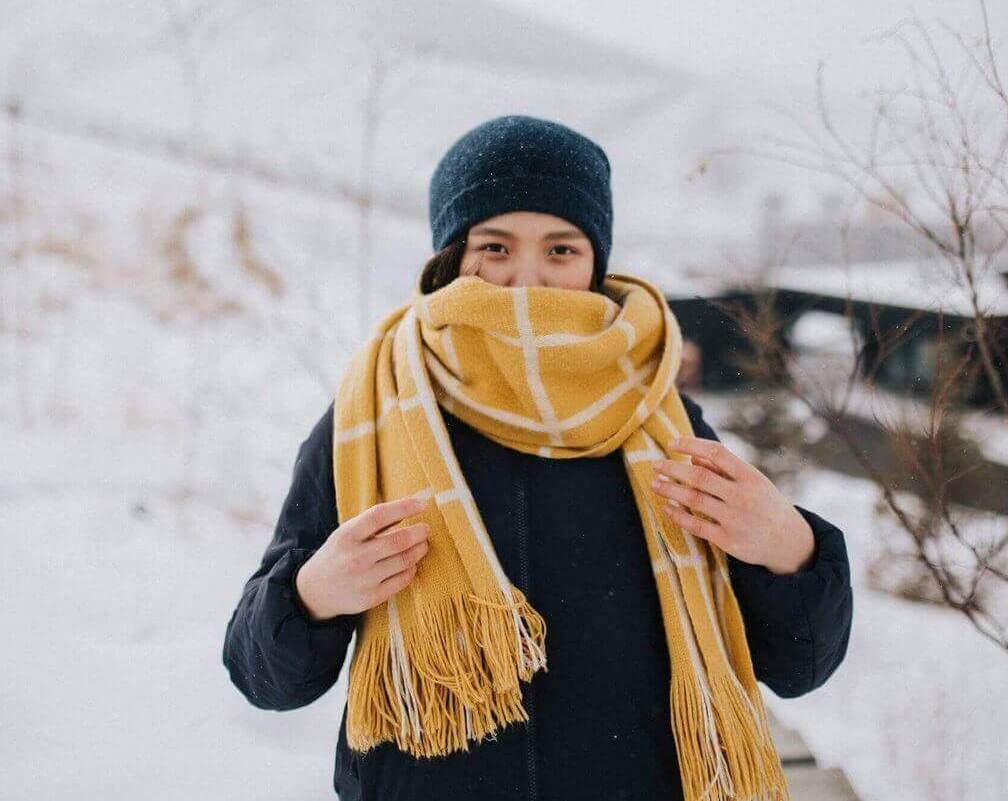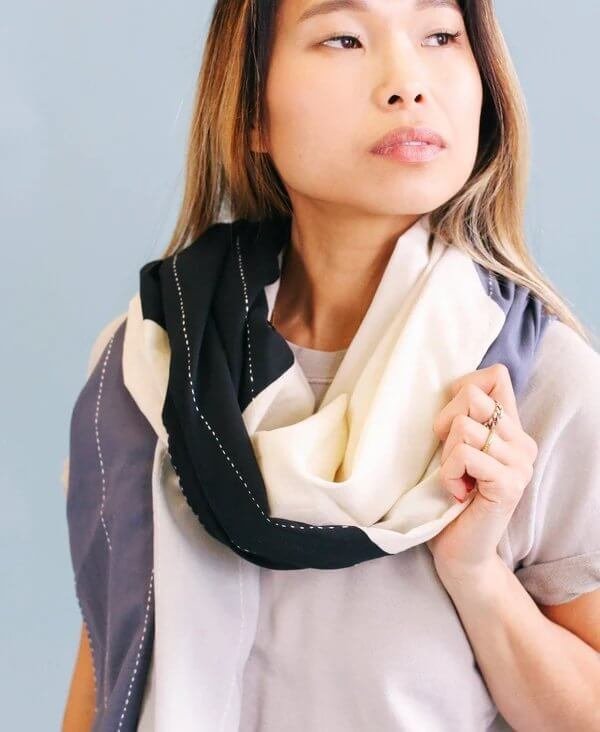The Best Fair Trade Scarves for Fall & Winter
During winter, scarves wrap us in a warm embrace, keeping winter’s chilly fingers from creeping down our backs. Scarves are incredibly functional.
Besides keeping you warm, they also shield you from the sun or keep your hair in place on a blustery day. They’re a great accessory too, elevating an outfit by giving it extra flair or a pop of color.
This post does contain some affiliate links which means The Honest Consumer may receive a commission if you decide to purchase, however, at no additional cost to you!
When it comes to your ethical and sustainable closet, every item makes a difference; that includes this winter accessory.
If you want to know what you’re wearing is good for the planet and its people, fair trade accessories can be a great choice. Who doesn't love a fairly-made, beautiful scarf?
A few ethical and sustainable scarf brands we’ll be exploring include:
Read on to learn why these brands are a great option and learn more about what to look for when scarf shopping.
7 Eco-friendly Fair Trade Scarf Brands
If you’re looking for a new scarf to stay warm this fall and winter consider checking out these socially responsible brands that use fair trade practices and responsibly sourced materials.
Anchal’s Sustainable Organic Cotton Scarves
Anchal scarves are ethically made by artisans in Ajmer, India. These scarves are sustainable made with GOTS certified organic cotton.
Their designs feature beautiful color blocks, geometric patterns, and detailed stitching creating a unique look.
Anchal scarves range from $58-$74.
Fair Anita’s Colorful Fair Trade Scarves
Fair Anita offers a variety of fair trade scarves, along with other accessories, using sustainable and recycled materials.
Fair Anita invests in their artisans, particularly women, and pays above minimum wage, while also providing health insurance and educational scholarships.
Fair Anita is a member of the Fair Trade Federation and Chicago Fair Trade, as well as being A Public Benefit Corporation.
Fair Anita scarves feature a bold colors and fun patterns perfect for adding a pop of color to any outfit.
These ethical scarves range from $15-$30 and are made with viscose, cotton, linen, and silk.
Studio Variously’s Eco-friendly Scarves
Based out of Detroit, Michigan, Studio Variously works directly with master artisans across India and Nepal to create a design collaboration one custom piece at a time.
Their masterfully crafted handmade scarves, rugs, blankets, and pillows feature unique patterns using certified Eco Swiss dyes. Their dyes are eco-friendly and sourced from plants whenever possible to promote the conservation of water.
All of Studio Variously’s artisan partners receive living wages. Their team sources raw materials from small farmers wherever possible to support a sustainable supply chain.
Their scarves feature natural materials such as linen, cotton, cashmere, and a merino cotton blend. Studio Variously’s scarves range from $129-$219.
Fair Trade Winds Striped, Floral, and Checkered Scarves
Fair Trade Winds is a family owned fair trade boutique. As verified members of the Fair Trade Federation, Fair Trade Winds works with about 150 artisan organizations in 57 countries around the world.
The artisan groups range in size from just a handful in one small community to thousands spread out over entire countries.
Their wide range of artisan made products means there are lots of options when it comes to shopping fair trade scarves. Their scarves feature a variety of colors and patterns including striped, floral, and checkered.
Ethical shoppers also have a wide range of materials to choose from when scarf shopping with Fair Trade Winds as consumers will find silk, cotton, wool, linen and bamboo.
These ethical scarves range in price from $20-$78 ensuring there is something in everyone’s budget.
Passion Lilie’s Ethically Made Cotton Scarves
Passion Lilie’s sustainable and fair trade scarves come in a variety of colors, prints, and patterns. Handwoven using the ikat weaving technique, the scarves showcase their artisans’ craft and talent.
Ikat weaving can be a lengthy process, so Passion Lilie provides weavers with an advance for this type of work.
The scarves are ethically made in India and range from $26-$48.
Passion Lilie is also a member of the Fair Trade Federation.
Known Supply Fair Trade Certified Accessories
KNOWN SUPPLY is humanizing the apparel industry through collaborative partnerships which encourage, educate, and empower businesses to take part in social impact.
This certified B Corporation is crafting ethical clothing while creating employment opportunities in Peru & Uganda through their partnership with Fair Trade Certified.
Their scarves are made with organic cotton and/or acrylic ranging from $24-$25.
The Good Tee’s Infinity Capsule Scarf
The Good Tee is an ethical clothing brand focusing on high quality Fairtrade Certified organic cotton basics. The Good Tee’s Infinity Capsule Scarf comes in a wide range of colors and is made with fair trade organic cotton.
This versatile scarf can be worn 20+ ways and is a great addition to any casual to dressy outfit. The perfect transitional piece that can be worn in different ways. From an infinity scarf to a shirt, a vest, a shawl, a head covering, to a blanket- the possibilities are endless.
The Infinity Capsule Scarf can be purchased for $38.
Hopefully this guide has helped provide you with some great options for fair trade scarves! Whether it's for chilly evenings, the perfect travel layer or simply a timeless piece and fashion statement, rocking a sustainable scarf is always a win.
Be sure to check out our other guides when curating your ethical closet.
More Ethical Fashion Posts to Read:
MEET THE AUTHOR
Claudia Hauter is a South African writer, copy editor, and content creator with degrees in Drama and Anthropology. She works in television managing web content. When she isn’t reading or writing, she’s walking her dog, finding small businesses and markets to support, or attracting butterflies and bees with her vegetable garden. Learn from Claudia on Twitter or Instagram.
For more tips & tricks on sustainable living be sure to follow The Honest Consumer on social media, subscribe to our newsletter, & check out the Ethical & Sustainable Brand Directory.







